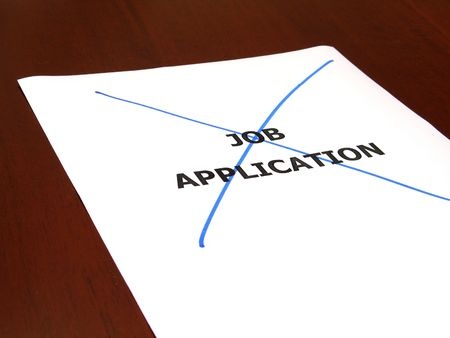
‘I have applied for loads of jobs, but the recruitment agencies never get back to me’. This is a statement I hear a lot from jobseekers. Local newspapers run sensationalist stories of a job seeker who has made hundreds of job applications without a single reply. Are recruitment agencies really so mean?
I think it helps to start with what a recruiter does. Day in day out we post jobs, we receive applications, we want to act fast on behalf of both our client and our candidate. We have targets to meet. On top of that, we also undertake new business development, pitch candidates into companies, interview candidates on the clients’ behalf, administration work, social media updates and networking to build our talent pool. But we’re a business, not a charity – we can’t, and don’t, guarantee to get a job for everyone that walks through the door.
In some cases, we receive over 300 applications for one job; and if one consultant is working on 6 jobs that day, it could be potentially 1,800 applications for them to respond to in just one day. We try and send a quick e-mail to everyone who applies if they’ve been unsuccessful for a role, but that can become an endless task! So what do we do? If I am being honest; we skim through the headline information provided by the job board you applied through. A recruiter will typically decide if a CV is worth an in-depth read within 10-15 seconds – that’s not much time to make an impression.
There are 2 key reasons we skip an applicant: either they aren’t qualified or experienced enough to do the job or they don’t live in commuting distance of the role.
So how do you get around it? Firstly, make sure your details are up to date. Make sure your contact details are correct, as well as your address – if you’ve recently moved or planning to relocate, make sure your CV reflects that. You would be amazed how many people forget to update their address and phone numbers on their CVs, or even don’t include them.
Also, when you’re applying for work, think quality rather than quantity. Most of the applications we receive do not have any relevant experience to do the job. For many, this may be pressure from the Job Centre to apply for as many jobs as possible, any job, and to hit a weekly target of jobs applied for. It also doesn’t help that many job boards like Indeed will use the default search radius on their websites as 25 miles, which is usually much further than most people will travel, even in rural areas.
But if you’ve been applying industriously for a week and sent your CV out for hundreds of roles with no response, that can get very disheartening. So think carefully before you apply for a job: ‘Am I qualified?’, ‘Can I do the job’, ‘Can I get to the job?’ Tailor your CV and covering note to tick off as many of the points on the job description as you can – if these details aren’t on your CV then you can’t expect a recruiter to read your mind and know.
And if you still don’t get a response, don’t be afraid to follow up yourself. Give the agency a call and ask for some feedback. There might be details that weren’t put on the advert which you didn’t meet, or simply that there were plenty of applicants with better experience. If you can make a good impression on the phone, then you may well be first in someone’s mind when a new job role comes in.
We get upset when we hear people talk negatively about recruitment agencies in general, with the ‘no reply’ gripe being common. There are some agencies out there who are more unscrupulous in their approaches, employing dirty tactics like posting fake job adverts to get CVs and a couple have made the headlines recently for paying temporary workers less than the minimum wage at the request of their clients. Sadly they give the many agencies that are ethical and responsible in their approach a bad name.
However, we work hard on behalf of our clients and candidates, and try to give the best customer service we can. We can’t always get back to everyone – it would often be a big waste of time for both parties if we did try and call every applicant.
We know that looking for work can be frustrating, but sometimes instead of pointing the blame at agencies, reflect on the applications you’ve been sending and see how you can improve them: take a look at some of the CV writing advice we have on our website, and let us know on social media if your luck changes.
Originally posted May 2014.

